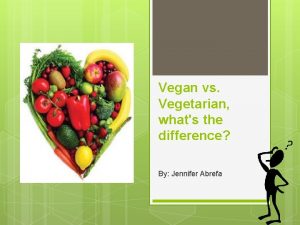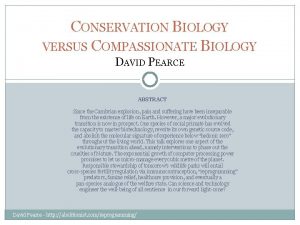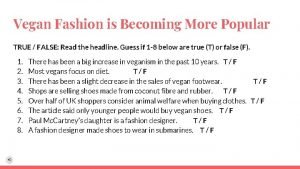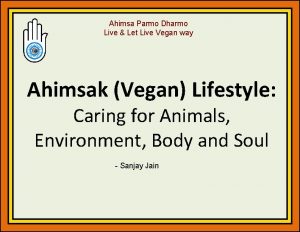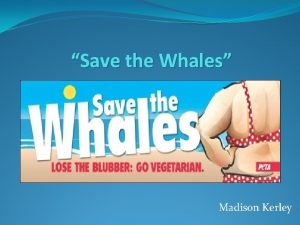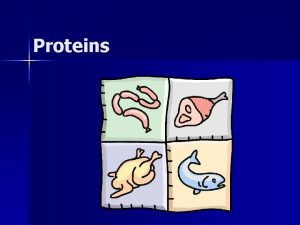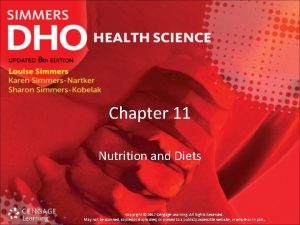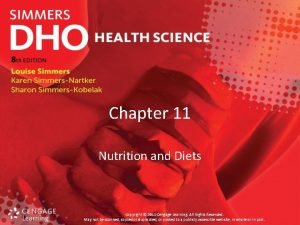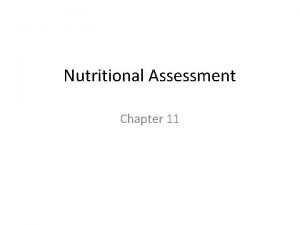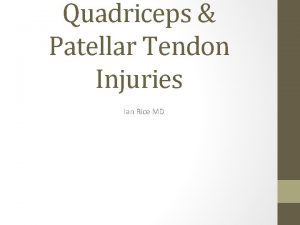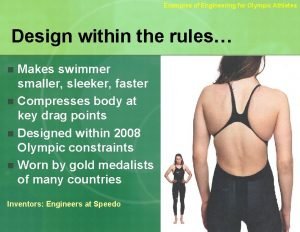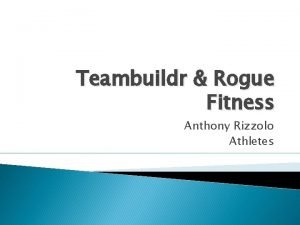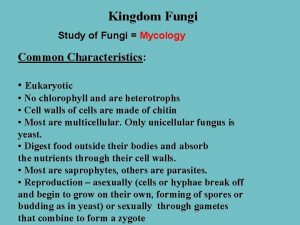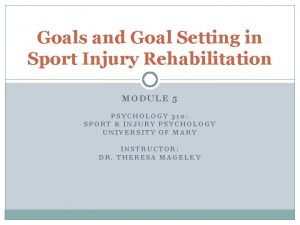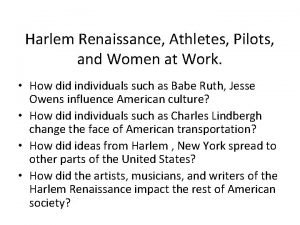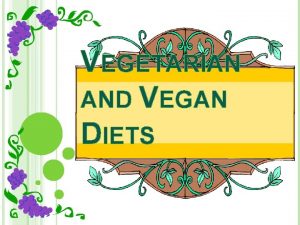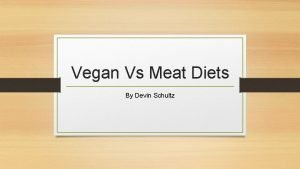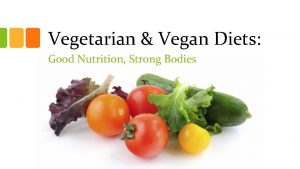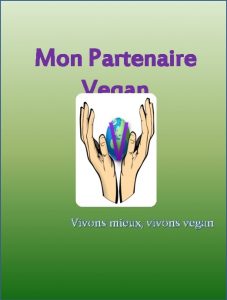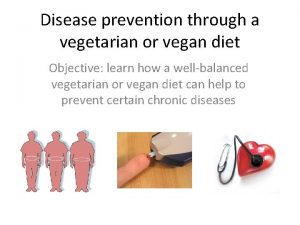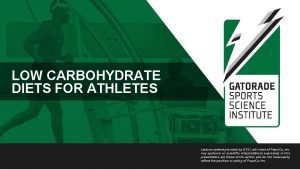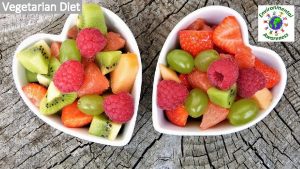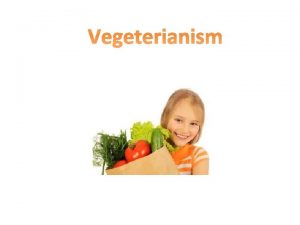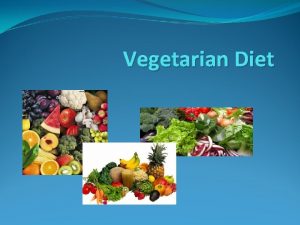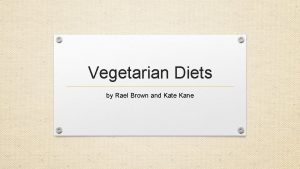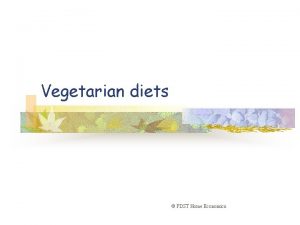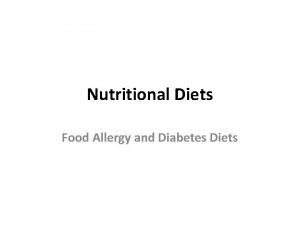VEGETARIAN AND VEGAN DIETS FOR ATHLETES Lecture content




























- Slides: 28

VEGETARIAN AND VEGAN DIETS FOR ATHLETES Lecture content provided by GSSI, a division of Pepsi. Co, Inc. Any opinions or scientific interpretations expressed in this presentation are those of the author and do not necessarily reflect the position or policy of Pepsi. Co, Inc.

Lecture Outline 1) Vegetarian/Vegan Diets Defined 2) Potential Dietary Benefits 3) Nutrient Considerations for Athletes 4) Practical Applications

VEGETARIAN & VEGAN DIETS DEFINED

Types of Vegetarian Diets SSE #188 Larson-Meyer DE. Sports Science Exchange. 2018; 29(188): 1 -7

Reasons for Vegetarian & Vegan Diets Athletes elect to follow a vegan/vegetarian diet for a variety of reasons, including: • Health • Environmental • Ethical • Philosophical • Religious/Spiritual

Vegetarian/Vegan Trends Google Trends Search for search term hits for “vegan”, “vegetarian” and “meat” in Germany, the USA, and the UK from 2004 -2019 (Medawar et al. , 2019) • Nationwide polls in the U. S. suggest that ~3. 3% of adults are vegetarian or vegan • ~46% of all vegetarians in the U. S. are estimated to be vegan • Among athletes, a survey from the 2010 Commonwealth games found that 8% of international athletes reported eating vegetarian diets, with 1% being vegan Pelly FE & Burkhart SJ. Int J Sport Nut and Exerc Metab. 2014; 24(1): 28 -36 Vegetarian Resource Group, 2016

POTENTIAL DIETARY BENEFITS

Potential Benefits Vegetarian/vegan diets associated with a risk of: • Obesity • Hypertension • Cardiovascular disease • Type 2 diabetes • Cancer mortality Melina V, Craig W, Levin S. J. Acad. Nutr. Diet. 2016; 116: 1970 -1980

Enhanced Performance? It has been hypothesized that vegetarian diets improve athletic performance due to higher consumption of: Carbohydrate Antioxidants/Phytonutrients However, there is little research evidence to confirm these claims Akers, W. (2019). Elite Athletes Are Going Vegan. Will It Help You? . Healthline Craddock JC, Probst YC, Peoples GE. Int J Sport Nutr Exerc Metab. 2016; 26: 212 -220 Trapp D, Knez W, Sinclair W. J Sports Sci. 2010; 28: 1261 -1268

Dietary Essentials for Performance To help ensure optimal performance, vegetarian/vegan athletes must consume: 1. Adequate energy; and 2. Foods rich in essential nutrients that are less abundant in vegetarian foods (or are not as well absorbed from plant compared to animal sources)

NUTRIENT CONSIDERATION S FOR ATHLETES

Carbohydrate • Overall, the carbohydrate needs of vegetarian/vegan athletes do not differ from non-vegetarians • Recommended daily intake: 510 g/kg/day for most athletes performing moderate to highintensity exercise of ~1 -3 h/day • Intake of adequate carbohydrate should be emphasized in light of low carb diets that may be appealing to vegetarian athletes Thomas DT, Erdman KA, Burke LM. Med Sci Sports Exerc. 2016; 48: 543 -568

Common Carb Sources for Vegetarian Athletes • Grain products • Fruits • Juices • Starchy vegetables • Sports products (beverages, gels, bars)

Protein • Protein requirements vary according to training level and activity type, ranging from 1. 2 -2. 0 g/kg/day • Vegan athletes should consume a variety of plant-based protein sources to help ensure adequate intake of protein and essential amino acids* *Adequate intake may be easier for lacto-ovo vegetarians Thomas DT, Erdman KA, Burke LM. Med Sci Sports Exerc. 2016; 48: 543 -568

Plant-Based Protein Sources • Soy products (e. g. tofu, tempeh, etc. ) • Beans • Lentils • Nuts and seeds • Most grains (e. g. quinoa)

Lacto-Ovo Vegetarian Protein Sources • Milk • Yogurt • Cheeses • Cottage cheese • Eggs

Fat • Fat intake should be in accordance with public health guidelines • Vegetarian diets are typically rich in omega-6 fatty acids; therefore, athletes may benefit from omega-3 rich foods • High-fat, low carb diets have been shown to compromise performance during highintensity activity, and thus should be avoided Thomas DT, Erdman KA, Burke LM. Med Sci Sports Exerc. 2016; 48: 543 -568 Li D. Chin Med J. 2003; 116: 453 -458

Plant-based Sources of Fat • Nuts (e. g. almonds, walnuts, peanuts, etc. ) • Avocados • Oils (e. g. olive, canola, sesame, etc. ) • Flax seed • Chia seed • Hemp seed

Micronutrients • Athletes should pay attention to certain nutrients found less abundantly in plant-based foods, including: • Iron, zinc, calcium, vitamin D, iodine, vit. B-12, and riboflavin • If necessary, consumption of fortified foods or supplementation should be considered Melina V, Craig W, Levin S. J Acad Nutr Diet. 2016; 116: 1970 -1980

Performance consequences of RED-S Mountjoy M, et al. Br J Sports Med 2014; 48: 491– 497. doi: 10. 1136/bjsports-2014 -093502 Decreased muscle strength Decreased endurance performance Increased Injury risk Decreased training response Decreased glycogen stores RED-S Impaired judgement Depression Decreased coordination Irritability Avoiding Low Energy Availability • Some evidence suggests relative energy deficiency in sport (REDS) may be more common in vegetarian athletes • This may be due to consumption of low energy-dense, high-fiber plant foods coupled with high training demands • Adequate energy intake should be emphasized for these athletes Decreased concentration Larson-Meyer DE. New York, CRC Press. 2018 Craig WJ. New York, CRC Press. 2018

PRACTICAL APPLICATIONS

Tips to Help You Guide Athletes 1. Athletes should be encouraged to eat a diet that contains a variety of plant foods, including whole and enriched grain products, fruits, vegetables, protein-rich plant foods, and (if desired) dairy products and eggs 2. Properly educate vegetarian/vegan athletes on sources of both macro- and micronutrients that fit their personal preferences and values 3. Ensure the athlete is not practicing a vegetarian/vegan diet in order to mask an eating disorder, as this is a serious mental illness that can impair health and athletic performance

Vegetarian Sources of Key Nutrients SSE #188 Larson-Meyer DE. Sports Science Exchange. 2018; 29(188): 1 -7

Vegetarian Sources of Key Nutrients SSE #188 Larson-Meyer DE. Sports Science Exchange. 2018; 29(188): 1 -7

Complementary Proteins for Vegan Athletes Below is a list of options combining multiple plant protein sources to help improve delivery of essential amino acids. Zabka-Belsky C. GSSI Sports Nutrition 101: Vegan Fueling Strategies and Complementary Proteins (Handout). 2018

What is an example of a nutritious breakfast for a vegetarian athlete?

Sample 3, 000 kcal Lacto-Ovo Vegetarian & Vegan Diet SSE #188 Larson-Meyer DE. Sports Science Exchange. 2018; 29(188): 1 -7

SUMMARY ü With proper planning, vegetarian and vegan athletes are able to meet their energy/nutrient needs on a diet that contains a variety of foods ü Depending upon food preferences, eating patterns, and training load, the diet of some athletes may contain suboptimal amounts of certain nutrients (e. g. total energy, protein, omega-3 fatty acids, calcium, vitamin D, iron, zinc, riboflavin, and vitamin B-12) ü In such cases, athletes can generally improve nutrient status through careful selection of foods containing the nutrient(s) they lack and a supplemental source when appropriate ü There is currently limited evidence that vegetarian/vegan diets are better than omnivorous diets for improving athletic performance
 Semi vegetarianism
Semi vegetarianism Athletes vs non athletes academic performance
Athletes vs non athletes academic performance The global vegan
The global vegan Vegan market canada
Vegan market canada Vegan fashion is becoming more popular
Vegan fashion is becoming more popular Vegan parmo
Vegan parmo Different types of vegetarian
Different types of vegetarian What is this
What is this Peta save the whales
Peta save the whales Betty wanted to know when i had come
Betty wanted to know when i had come Management of kwashiorkor
Management of kwashiorkor Chapter 11 nutrition and diets
Chapter 11 nutrition and diets Chapter 11 nutrition and diets key terms
Chapter 11 nutrition and diets key terms Chapter 11 nutrition and diet
Chapter 11 nutrition and diet Chapter 11 nutrition and diets
Chapter 11 nutrition and diets Carrier content and real content in esp
Carrier content and real content in esp 01:640:244 lecture notes - lecture 15: plat, idah, farad
01:640:244 lecture notes - lecture 15: plat, idah, farad Why should teen athletes avoid performance enhancers?
Why should teen athletes avoid performance enhancers? Volleyball 6 word memoirs
Volleyball 6 word memoirs All athletes have an innate preference
All athletes have an innate preference Athletes suddenly dying
Athletes suddenly dying Famous athletes with osgood schlatters disease
Famous athletes with osgood schlatters disease Athletes body engineers
Athletes body engineers Rogue fitness athletes
Rogue fitness athletes Fungi characteristics and examples
Fungi characteristics and examples Goal setting theory
Goal setting theory The presence of spectators helps young athletes
The presence of spectators helps young athletes Should college athletes be paid thesis statement
Should college athletes be paid thesis statement Harlem renaissance athletes
Harlem renaissance athletes
